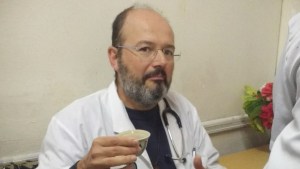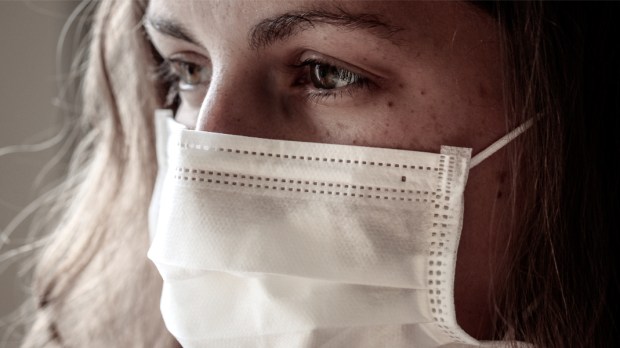The mayor of Volvera, a small town in northern Italy, has published the intense and moving story that a nurse at local San Luigi Hospital told him. “I don’t want to describe what the media are transmitting: numbers, statistics, decrees, and prohibitions,” she told him. “I would like to [share what it’s like] at the side of COVID-positive patients and the healthcare worker. COVID is much more than a devious virus.”
Her testimony is a glimpse of what’s happening in the intensive care units of hospitals around the world. Above all, she is a witness to the tragedy that unites patients, family members, and health-care workers in an experience of extreme suffering—and the glimpses of light that give rise to hope nonetheless.
We must not allow the virus to rob us of our human dignity
In hospitals, where the specter of death hovers like an ever-present threat, the relentless battle is not only to save lives but also for the equally difficult but less visible cause of defending the dignity of human beings, for the benefit of all of us.
COVID-19 has the power to make the sick feel as if they were reduced to just their bodies, to which people can mechanically attach wires and tubes. They find themselves in a situation that seems to condemn their relatives to the excruciating guilt of being absent at the sacred moment of their loved one’s passing.
The circumstances sometimes seem to harden the hearts of those who fight to heal them as doctors and nurses are forced to avoid meeting the eyes of those whom they treat, so they can sustain the enormous effort to which they are called.
A video call to say goodbye
All this suffering is described in the episode shared in the letter. It speaks of a mother of four who desperately seeks to look the nurse in the eyes, softening her heart by appealing to their common motherhood, begging to be recognized as a person even if dying. It describes a phone call to the patient’s four children, during which the doctor informs the patient and her loved ones of her grave prognosis.
The nurse, in the face of this desperation, uses her own smartphone to make a video call so the patient can wish her family farewell. They see each other for the last time, with tears in their eyes and words of infinite love.
Then, the nurse who wrote the letter says, “The patient dies. You decide to go out and leave the rest to your colleagues. And you see that, as procedures require, they spray her with disinfectant, wrap her in a sheet and take her to the mortuary. Alone … alone … her personal effects, gathered in a triple black bag, will be incinerated.”
“Thank you, I’ll watch over you for what you’ve done.”
When the hearse carrying the coffin turns left and the car of the patient’s only son who was present in the mortuary turns right, everything seems lost and meaningless. The virus has triumphed; it has destroyed another life. Yet it has not succeeded in emptying this death of deep meaning.
A precious legacy remains to those who continue to live. The nurse recounts: “[The patient] takes your hand, and says, ‘Thank you. I will watch over you for what you have done.’ And you find it hard not to cry.”
These words resound with blessing and hope for all, believers and non-believers alike. In the face of this immense tragedy, the only salvation is in our humanity, in the gift of recognizing in the eyes of others—in joy but even more in pain—a soul like our own.
Here is the post of the mayor, Ivan Marusich, who reproduces in full the letter of the nurse:
In these difficult times, let’s remember who we are, and the unchangeable human dignity of each one of us. We are children of God, brothers and sisters in Christ. Even the indignities and inhumanities of a pandemic cannot change that. Let’s not forget to seek the face of Christ in one another.

Read more:
Nurse fighting coronavirus gets this heartwarming letter from young daughter

Read more:
Italian priest becomes a doctor again to help with pandemic

